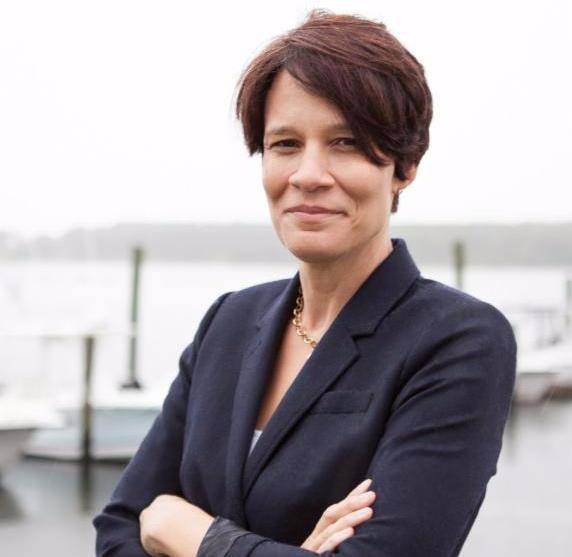
While expected by political observers, the announcement that the General Assembly had finally confirmed the Rhode Island Supreme Court’s first non-white associate justice – and the first Asian American Superior Court judge, and the first Latina to the Family Court – might have come as a surprise to many, given the state’s overall racial diversity and 250-plus year history.
Though we’ve been short on good news this holiday season, there was statewide praise for the Senate confirmations of Melissa Long to the Supreme Court bench, attorney Linda Rekas Sloan to Superior Court, and former Central Falls municipal judge Elizabeth Ortiz to Family Court.
Speculation over Raimondo’s possible appointment choices ignited a conversation about the lack of a diverse judiciary and jumpstarted mainstream acknowledgement of wide, longstanding systemic obstacles. Progressive activists had been shining a light on the poor state of judicial diversity for years; however, suddenly, the average citizen was forced to reckon with the fact that all too often minorities accused of crimes find themselves in front of judges (and juries for that matter) whose racial identity (read: white) does not represent their own community.
An overview of the Smith Hill response showed a desire to push this movement further. In a December 11 press release issued before the General Assembly took up the nominations, Rep. Grace Diaz (District 11, Providence) called the appointments “long overdue.”
Other state pols agreed there is work to be done. Said Rep. Karen Alzate in a Dec. 10 statement, “taking no credit away from these three impressive women and their accomplishments, these nominations do not end the need to continue to diversify our judicial system. There is still a way to go before our judicial system accurately reflects the demographics of our state, and we will continue to call for fair representation during future court openings.”
Rhode Island political activists have been pressuring Raimondo for years to further diversify the state’s judiciary as vacancies opened. Like many state and federal bureaucracies, Rhode Island’s judicial apparatus historically skewed very white and very male. What in legal circles is often referred to as the “gavel gap” can lead to unjust treatment of minority defendants, whether through implicit bias or outright prejudice.
Jim Vincent, president of the Providence NAACP wrote in a December 5 op-ed that Raimondo’s picks would solidify “her legacy as a Judiciary civil rights champion,” imploring her to “make history, and continue to diversify the courts.”
The data on the racial breakdown of the country’s judges is stark indeed. A study released by the Brennan Center for Justice, titled “Improving Judicial Diversity,” found not just a gap in the makeup of Rhody’s court system, but an ocean. While the gender breakdown of judges in Rhode Island has improved over the decades (now around 50/50), racial disparity has been egregious.
Nationwide, they found that white male judges in state appellate courts outnumber other demographics by a 2-1 margin and that “almost every other demographic group is underrepresented when compared to their share of the nation’s population. “
They also found evidence that “the number of black male judges is actually decreasing.”
“The United States is more diverse than ever, but its state judges are not… Rhode Island’s population is 21% non-white,” wrote the authors of the 2010 study. “And its minority bar membership is only 2%.”
Things have been (very slowly) improving. According to an updated tally by the American Constitution Society, now 7% of Rhode Island’s judiciary are Black.
That said, Melissa Long was at the time the only person of color serving on the state’s Superior Court bench at the time of her 2017 appointment. Until her nomination, Rhode Island was one of 23 states with an all-white Supreme Court.
And state leaders were well aware. In 2017, Chief Justice Paul A. Suttell hired Dorca Paulino as the first-ever diversity coordinator to “enhance minority hiring in the courts and promote minority interest in the legal profession,” according to a 2019 press release announcing the office’s reception of the Equal Opportunity/Affirmative Action Exemplary Practice Award presented by the American Society for Public Administration.
Among the various systemic issues, a major one is increasing the number of qualified minority candidates through public outreach and programming to open a pipeline to the judiciary, which many observers agree is paramount to fixing the problem. In an interview with Roger Williams University, where she is an alumna, Paulino said that 23% of new staff hires in fiscal year 2019 identified as minorities.
The progressive victories in November’s assembly race showed a voter thirst for action. It seems Rhody is now playing catch-up. Long’s father, an Army veteran, attended segregated schools in Virginia before the practice was outlawed. And Virginia placed their first Black justice, John Charles Thomas, on the bench in 1983.
In a statement released after her Senate confirmation, Long said, “I pledge to the people of Rhode Island always to work hard and with humility, to strive to emulate the qualities of our most admired jurists, and to honor the legacy of those who blazed the trail before me.”

